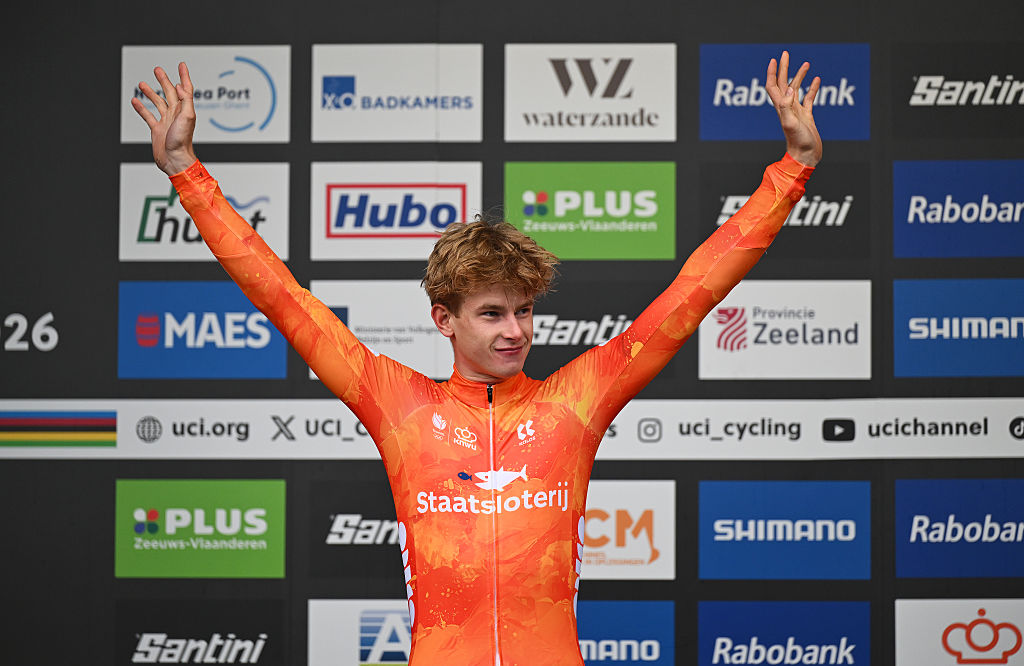The 2025 Tour de France: Eight things we learned
From Tadej Pogačar's refinement of his domination of Jonas Vingegaard to the worst Spanish Tour in nearly half a century, here's what we found out in this year's Grand Boucle
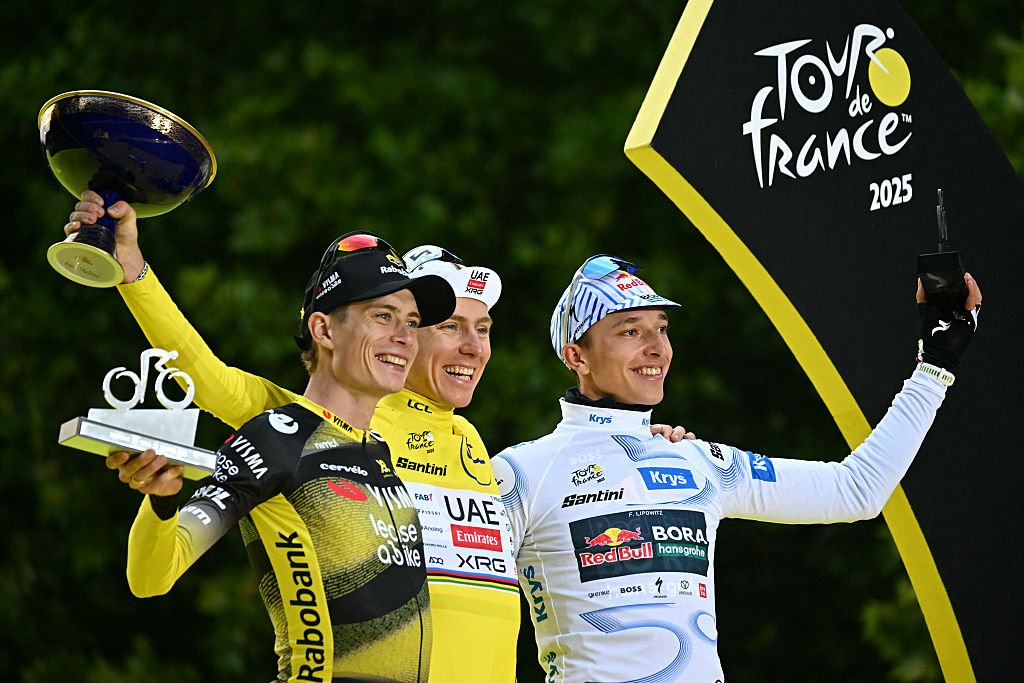
- Primož Roglič is still the top dog at Red Bull-Bora-Hansgrohe
- There will be life for Soudal-QuickStep in the Tour de France even after Remco Evenepoel's (probable) departure
- Where are all the established big-name GC riders?
- The Tour is at risk of becoming unattractive for sprinters
- Tadej Pogačar's victory over Jonas Vingegaard in 2025 was more decisive than the same win in 2024
- Spain has experienced its worst ever Tour in decades
- Visma-Lease A Bike were too ambitious going for both stage wins and the overall
- The Montmartre circuit definitely worked
The 2025 Tour de France is over, Tadej Pogačar's fourth overall victory in six years is securely in the bag, and the final barricades were cleared away from the Champs-Elysées this morning. Yet the debate about what happened, where and why, as Pogačar forged his way to another crushing win over Jonas Vinegegaard and the rest of the peloton will endure amongst fans for days and weeks to come.
Here - in no particular order - are Cyclingnews' eight conclusions about the key events in the biggest bike race of the year, as we look back at the rain-soaked stages of northern France, he epic breakaway battle across the Massif Central and the mountain showdowns of Hautacam, Ventoux and Col de la Loze,
Primož Roglič is still the top dog at Red Bull-Bora-Hansgrohe
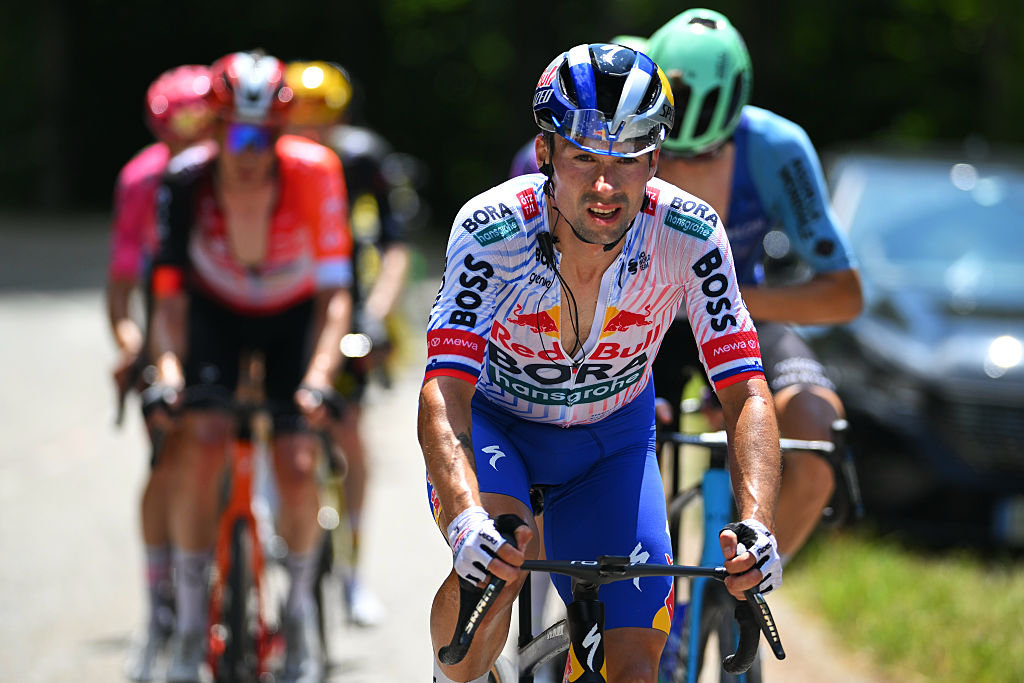
Yes, it was Florian Lipowitz who ended up on the podium of the Tour de France, but make no mistake: Primož Roglič is still top of the pile at Red Bull-Bora-Hansgrohe.
The pair of GC riders started the race as equals – perhaps wrongly, since Lipowitz had had a much better run-in of stage races than Roglič and ultimately showed that. Whilst there was never any real battle for power between the two, with Roglič clearly genuinely happy for Lipowitz to race his own race, he never quite fully bowed to his younger teammate.
The situation couldn't have been clearer than on stage 19, where Roglič went on a last-ditch attempt to win a stage, and failed, losing more than 12 minutes on the day, and offering no support to Lipowitz on a key GC day.
In any other situation, where a team had a podium place to defend from a 22-second challenger, the whole team would be placed on high alert, committing their day to achieving the goal. Roglič was allowed to go off on his own pursuit, just because he wanted to, with little regard to how it might affect Lipowitz.
Ultimately, Red Bull's gamble paid off, because even without Roglič, Lipowitz was more than able to hold his own and secure his podium spot, but it was a risk.
The latest race content, interviews, features, reviews and expert buying guides, direct to your inbox!
From that, we can conclude that Roglič still has rule of the roost at the team, and the freedom to do what he wants, rather than what is best for all involved. He is of course a five-time Grand Tour winner and the most experienced GC rider on the team, but it's a curious dynamic to have in a team.
If he carries on next year – which is in doubt – it will be very intriguing how his position might change with the rumoured arrival of Remco Evenepoel. MP
There will be life for Soudal-QuickStep in the Tour de France even after Remco Evenepoel's (probable) departure
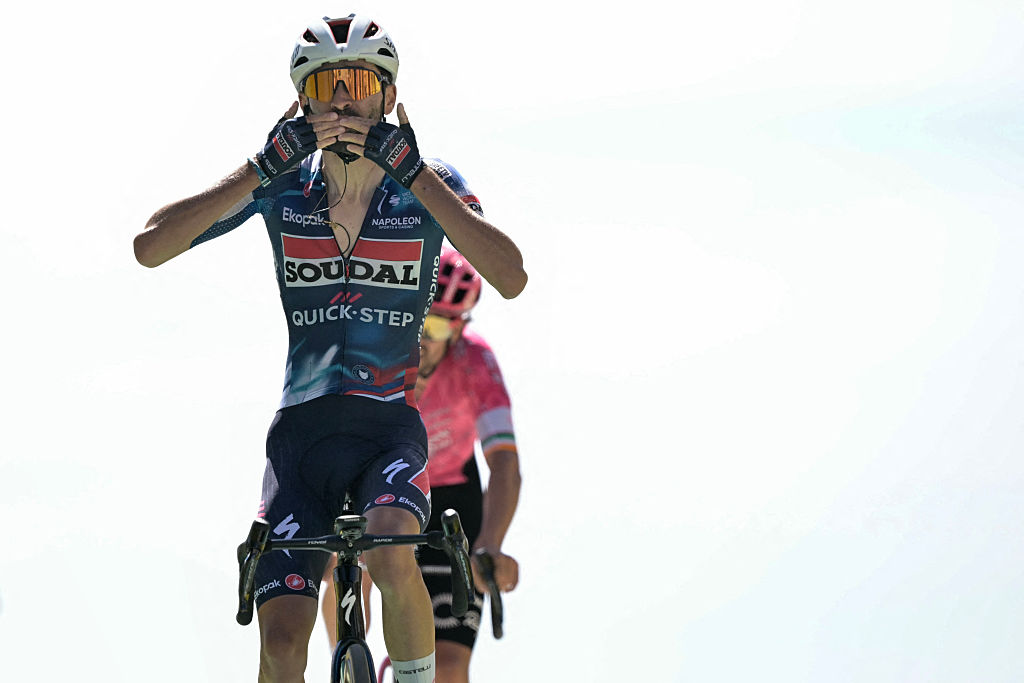
When Valentin Paret-Peintre won his stunning stage victory on the Mont Ventoux, his teammate Ilan Van Wilder could not have had a more graphic commentary for the team critics after the abandon of Remco Evenepoel.
"They can all go screw themselves, we won on the Ventoux!" was his succinct summary of how he felt about it all.
He's right, though, but not just because Paret-Peintre won.
Van Wilder's significant contribution to the Frenchman's success. He guided him in the final kilometre after he bridged across to the lead group at the last minute so Paret-Peintre could focus on his sprint. It spoke volumes about the team's strength as a collective and as a unit.
Paret-Peintre himself talked long and strong about the team's 'culture of winning' when he took the biggest triumph of his career (and France's first in the 2025 Tour) on the summit of the Ventoux. And it also showed, given Evenepoel's absence by that point in the race, how the team could continue to fight back after the Belgian star likely leaves for Red Bull-Bora-Hansgrohe next year.
It's true that Evenepoel's victory in the stage 5 time trial was a key talking point of the first week GC battle. But while his teammate like Tim Merlier can take two stage wins without the same degree of support as Jonathan Milan (Lidl-Trek) or even Jasper Philipsen (Alpecin-Deceuninck), it's clear that the team's ability to survive even the biggest of blows, including Evenepoel's exit, remains intact.
It's obvious that Soudal-QuickStep will at least be a significant factor in the Classics with new signings like Jasper Stuyven for 2026.
In the Grand Tours, Merlier and Paret-Peintre showed there are other areas where the team will continue to shine, too. And don't forget Mikel Landa, who will have far more freedom in the Grand Tours without Evenepoel, perhaps starting as soon as this year's Vuelta a España, should the Basque be back to full health. (AF).
Where are all the established big-name GC riders?
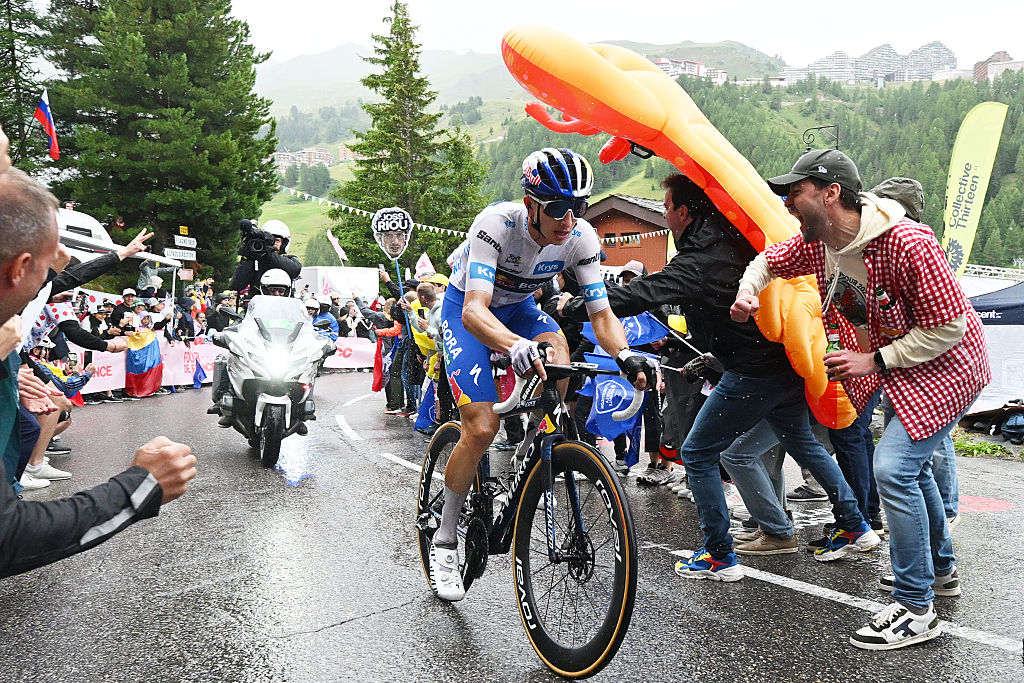
When you look at the top 10 of this year's race, there are very few riders outside the top 10 who could be considered established, conventional, big-name GC riders. Even on the podium, Lipowitz is a newbie to Grand Tour GC racing, as is Onley, and Johannessen, and Healy, and Jegat.
It's undeniably amazing for those riders to take a top 10 at this point in their careers and in this way, but it does raise the question: where are all the big-name GC riders?
One answer could be to think that riders have started to avoid the Tour because they know it's a two-horse race between Pogačar and Vingegaard, but who? Juan Ayuso is an example, but wouldn't have been here anyway, as he is Pogačar's teammate. Richard Carapaz and Egan Bernal are perhaps two of the only established GC riders who skipped the Tour.
In truth, the pool of big-name riders who have experience and success riding Grand Tour GCs is very small right now.
Pogačar, Vingegaard, Evenepoel, Roglič… There aren't too many other names who could be counted in that group, and those that are or who are also Grand Tour winners. Simon Yates, Adam Yates, João Almeida, Sepp Kuss are teammates of Tour contenders, so don't really figure in the fight.
Whilst it was cool to see so many young riders achieve a big result, it did feel like this race, and the current cycling landscape, is missing a really rich GC fight.
There just aren't enough riders who can be on the level of the top two, or perhaps too much money to incentivise riders to become super domestiques instead of leaders in their own right.
Hopefully, riders like Onley, Gall, Johannessen and Lipowitz will only come back to the Tour stronger in 2026, and maybe we can have a more serious fight among established riders for the top 10 spots. MP
The Tour is at risk of becoming unattractive for sprinters
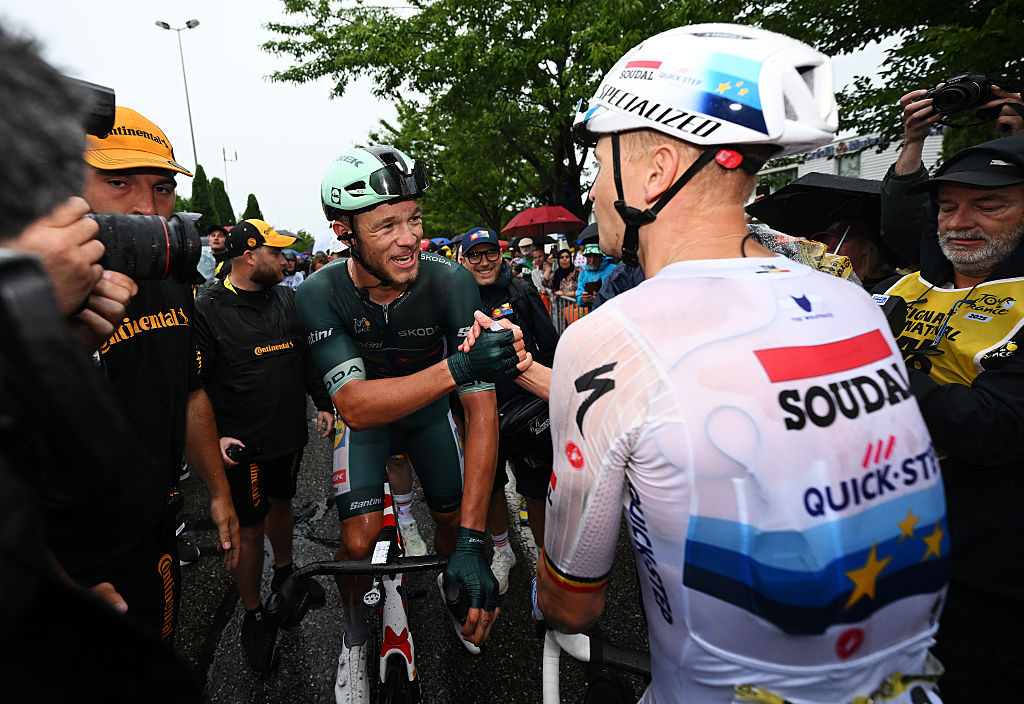
This change has probably been coming gradually since the sprint-fest Tours of the early Mark Cavendish era, but the way the Tour is becoming less sprint-friendly seemed particularly obvious in this year's race, especially with the absence of the Champs-Élysées sprint finish.
Ten of fifteen years ago, it would have felt conceivable that a sprinter could win five stages, and unlikely that a GC rider would do the same, but this year, that script was very much flipped. It's regularly been Pogačar who takes the biggest haul, not a sprinter.
And that's completely by design: the route organisers are opting for punchier finishes wherever possible, because they are ostensibly more exciting. Of course, a sprint finish is thrilling in its own way, but the Tour organisers aren't wrong to think that an uphill finale or Classics-style route is going to be more compelling to for most. It makes for great racing and watching, that is for sure.
However, the flip side is that there is a real risk that the Tour could alienate the sprinters.
This year, there were only five bunch sprint finishes. That's really not a lot. Even the green jersey, usually seen as a sprinters' classification, is becoming less favourable for the fast men. Remember, it was Tadej Pogačar who challenged Milan for the green jersey this year, not a rival sprinter.
It's totally up to the Tour's organisers and course designers to opt for punchier stages but without a balance, we are risking a world where sprinters just don't won't turn up to the Tour. Why slog through tough days and mountains for not even a Champs-Élysées sprint or green jersey.?
ASO need to find a balance, because sprinting is as much of an important part of cycling as any other discipline. MP
Tadej Pogačar's victory over Jonas Vingegaard in 2025 was more decisive than the same win in 2024
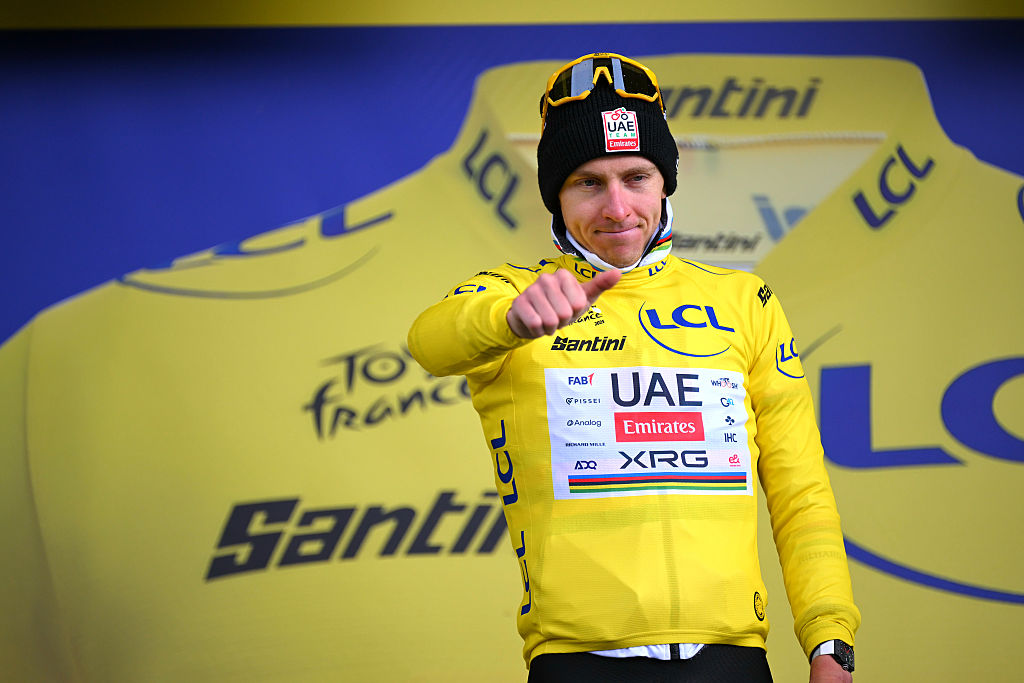
The time gap between Tadej Pogačar and Jonas Vingegaard may be nearly two minutes smaller than his 6:17 advantage of 2024, and he has 'only' won four stages as opposed to six last July.
However, as UAE head manager Joxean Fernandez Matxin pointed out to Cyclingnews before the Tour, this is the first time that Pogačar and Vingegaard had faced off each other without any external factors influencing since 2022.
As a result it can be argued Pogačar emerged an even more convincing and dominating Tour winner than ever before.
In 2023, Pogačar was on the back foot after his Liège-Bastogne-Liège crash and fractured wrist, with much talk within the team about Adam Yates being UAE's second GC option.
Then in 2024, it remained uncertain if Vingegaard, following his appalling crash in Itzulia Basque Country, would actually make it to the Tour until he actually appeared on the start list a couple of weeks before.
This time there were no such doubts or injuries. While 2024's final GC result may look more impressive, it's worth noting that Vingegaard did not win a single Tour stage this year, like he has done since 2022.
There were also no moments for Pogačar like Le Lioran, where last year, after Vingegaard outsprinted him in the Massif Central, it briefly looked like he could be on a downward curve and so heading for a repeat defeat by Vingegaard in the Pyrenees.
This time round there has been little room for doubt that Pogačar was always been in control and looking utterly on top of his game. You could argue that he did not miss out in the crosswinds of stage 1 - as he did in his first ever Tour in 2020 en route to Lavaur - because of greater experience.
But the knock-out performance in the stage 5 time trial, far ahead of even his own expectations, was preceded and followed by stunning uphill victories at Rouen and Mur-de-Bretagne. His climbing performance at Hautacam was second only speed-wise to Bjarne Riis' asterisked ascent in the 1996 Tour and he beat all records for the most prestigious ascent of them all this year, the Mont Ventoux.
The Ventoux was where Vingegaard's Visma-Lease a Bike team threw almost everything at Pogačar and it briefly looked as if he was potentially aiming for some trouble spots in the Alps. But it didn't happen and on the much-feared Col de La Loze, it was Pogačar who kept all his GC rivals, including Vingegaard, at a distance.
You could argue, in fact, that when Pogačar has been more muted, as he was in the Alps, he's actually been more impressive.
Stage 19's snooze-fest to La Plagne was partly due to Vingegaard and Visma throwing in the towel even before the start. But it was also thanks to Pogačar riding within himself, rather than shooting for every possible success. He showed a degree of maturity and self-control that has been lacking previously.
So this perhaps isn't as physically as powerful a Pogačar as 2024, when he won three stages in a row in the Alps. But in 2025 he didn't put a foot wrong.
His willingness to race calmly when needed may be a disappointment for those demanding two-wheeled fireworks all day every day but is actually yet another weapon in Pogačar's armory. AF
Spain has experienced its worst ever Tour in decades
There's been a lot of water under the bridge since the 1980 Tour when Vincente Belda, riding for the Kelme team finished 20th overall, more than half an hour down on winner Joop Zoetemelk.
But for Spain, if you exclude the Festina Tour de France, when almost all the Spaniards quit before the finish in Paris, this has been the worst collective performance since 45 years ago.
Not just because there were no stage wins whatsoever - that last came thanks to Carlos Rodríguez of Ineos Grenadiers back in 2023 at Morzine. In GC terms the best placed rider, Cristian Rodríguez (Arkea-B&BHotels) in 20th place overall, the same as Belda in 1980.
As if that was not enough, in the secondary classifications, Spain was all but absent, too with Arkéa's Raul García Pierna fifth in the white jersey best young rider rankings competition.
When all these disappointments were set in stone on Sunday, the contrast with The contrast with the Tour de France Femmes, where Spanish veteran Mavi García (Liv AlUla Jayco) won a stage solo by a dramatic narrow margin, indirectly underlined how disappointing the men's event had been for Spain.
The breakaway by Enric Mas (Movistar) to the Ventoux was arguably Spain's most stellar moment of a generally miserable Tour, with the Spaniard caught four kilometres from line. But this has been a poor Tour for Movistar in general, with Mas, originally their GC hope, abandoning on the Madeleine on stage 18 due to illness.
While Nairo Quintana remains the squad's last Tour stage winner of their total of 34, the Colombian star did not take part in the race. The squad's young Spanish National Champion Ivan Roméo, on the other hand, crashed badly stage 19 in the breakaway, too, although he was at least able to complete the Tour.
That was not the case for Carlos Rodríguez, who crashed heavily on stage 17 and was a DNS on stage 18 with a broken pelvis, whilst Spain's other promising top young racer, Juan Ayuso (UAE Team Emirates-XRG) raced the Giro d'Italia but after abandoning late on, was not selected for the Tour.
It could be argued that the absence of Ayuso and Mikel Landa (Soudal-QuickStep), fifth overall last year but injured this July, was a factor But it's also undeniable that the former superpower in the Tour in recent decades with Miguel Indurain, Pedro Delgado Alejandro Valverde, Joaquim Rodríguez, Oscar Freire and Alberto Contador, to name but a few, can only hope that it has touched bottom now.
Regrettably for Spain, at this point in time, the light at the end of the tunnel is looking fainter than ever. AF
Visma-Lease A Bike were too ambitious going for both stage wins and the overall
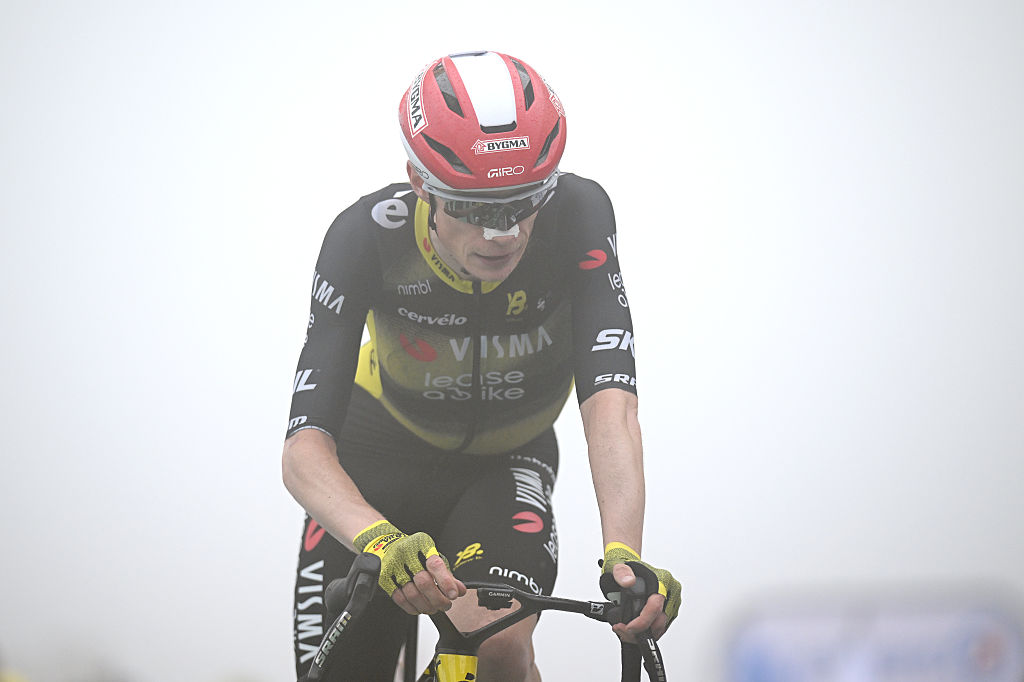
In the first week of the Tour de France, the words of Jonas Vingegaard's wife and agent, Trine Hansen in an interview in Politiken, arguing that 'If you focus on stage wins for others, you're not fully focused on Jonas' were played down by both Visma-Lease a Bike and Vingegaard.
Three weeks further on down the line, they're perhaps worth reconsidering.
It's true that in the first two weeks, Vingegaard had two bad days that cannot be blamed on the strategy used by his squad. The opening individual time trial in Caen, where he suffered his first big setback at the hands of Pogačar, was obvioulsy a solo effort and the summit finish at Hautacam also boiled down to a mano a mano with Pogacar. The Dane simply could not match his rival's accelerations. You could add the Peyragudes time trial to that list of individual defeats, although by then Vingegaard was visibly on a bounceback.
Yet as Ineos longstanding manager Dave Brailsford used to like to say, he'd rather have a strong leader and a weak team than a weak leader and a strong team. There can be no doubt that while Vingegaard's performance was patchy, rather than poor, his squad looked very powerful throughout the Tour, witness their final victory in the teams ranking.
Wout Van Aert's stage victory in Paris, after superb riding by Matteo Jorgenson, bookended Visma-Lease A Bike's collective standout performances. On the first Friday in Lille, the 'killer bees' and Vingegaard attacked in a late echelon, with Remco Evenepoel and the sprinters' teams their biggest victims.
That particular move also began the process of sinking another top favourite, Primož Roglič (Red Bull-Bora-Hansgrohe) and made it clear that their 'Classics-heavy' squad, as they called it themselves, would be making the running in the hilly finales of Boulogne and Rouen.
Then in the Mont Dore on stage 10, while they could not topple Pogačar, the victory of recent Giro d'Italia winner Simon Yates made it feel that he was the warm-up act for Vingegaard in the second and third week.
The Ventoux was widely - and rightly - given a colossal thumbs up for tactical brilliance on Visma's part, placing riders like Campenaerts and Tiesj Benoot in the break to help maintain the pace for Vingegaard, once he had gone on the attack.
But having done everything right again on the stage to the Col de la Loze, the Dutch squad opted to fire Jorgenson up the road in pursuit of stage winner Ben O'Connor (Jayco-AlUla) rather than challenge Pogačar.
The American's disappearance from the equation set things up for a general regrouping and allowed UAE to regain control of the narrative with Adam Yates and Jonathan Narvaéz. All this on the last real opportunity, given the subsequent partial cancellation of the La Plagne stage, to topple Pogačar.
Would it have made a difference if Visma-Lease A Bike had focussed fully on the overall, rather than trying their luck in the transition stages?
Certainly it would not have made too much of a difference for a rider like Wout Van Aert in the climbing stages, given his time of blasting over the Ventoux at the head of the field like in 2021 or dropping even Pogačar on the Hautacam like in 2023 appears to be a thing of the past.
When it came to Paris, Van Aert secured a spectacular victory on the Montmartre, but only after the GC times had been 'frozen' prior to the multiple ascents of the rainsoaked Cat. 4 climb.
Had the La Plagne stage happened in its full form, we might have witnessed some kind of devastating Visma collective performance that floored Pogacar at the last minute. But with the considerable benefit of hindsight, and excluding the Paris stage - which didn't count for GC, their decision to spread their goals to the stage wins seems overly ambitious.
No one can criticise Vingegaard for not trying his very best against a rival who was borderline impossible to beat. But a more protected Vingegaard might, just might have been able to achieve a lot more. Or at the very least, challenge Pogačar that much harder. AF
The Montmartre circuit definitely worked
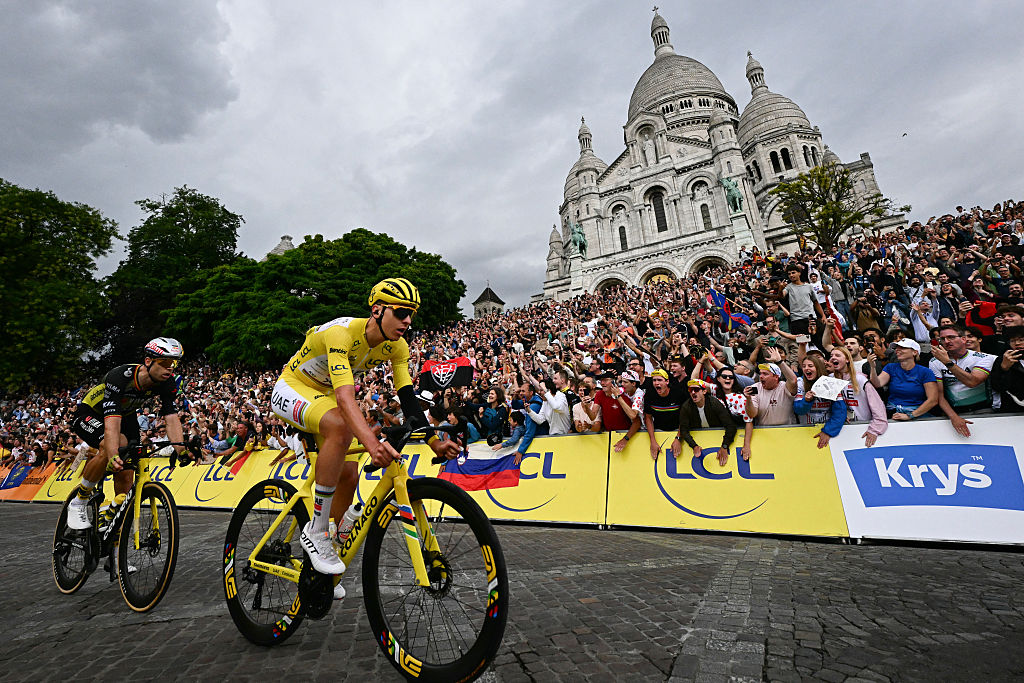
There have been weeks of speculation about how successful the inclusion of the Montmartre climb on the final stage would actually be, but on Sunday, it definitely worked in delivering a spectacle, and going off without any GC hitches.
Even in the rain, there were no major crashes or problems, and the CPA and UCI race jury wisely decided to take the GC times before the first Montmartre lap, meaning there was no late drama and those who just wanted to roll home could.
As for the racing, you couldn't really have asked for better, with one of the best puncheurs in the world in Wout van Aert going on the attack with yellow jersey Tadej Pogačar.
You simply don't see racing like that on the normal circuit, and the race leader genuinely being in contention for the stage win in Paris was a thrilling sight. The crowds were enormous on the climb, much more up close and personal than they are on the Champs-Élysées, making for an incredible atmosphere. It seems like it was a hit for the TV viewers, too.
ASO and the city of Paris also seem to be pleased with the outcome, so success all round, right?
Well, not universally, because it must also be said that a lot of the riders – anyone who wasn't in the front group, really did not love it. The rain didn't help, making the cobbles and the descents fairly sketchy, and at the finish there was definitely a sense of some riders that, in Paris, they just want to finish the stage safely and celebrate with their families. Montmartre added a stress between them and that goal.
It also did deny the sprinters a chance, and whilst it's not a God-given right that Paris should be a day for the fast men, the Tour should pay some respect to the history of the Champs-Élysées being seen as the unofficial World Championships of sprinting, and not do away with that kind of finish permanently.
Whether Montmartre will be back as a regular fixture remains to be seen – ASO have even hinted that the Tour might not always finish in Paris – but what's clear that, if they want to, the Tour certainly can do this again, whether it's every year, every five, or every 10, and it will deliver a great stage. MP
The Tour de France is the biggest race in cycling, and a Cyclingnews subscription offers you unlimited access to our unrivalled coverage. Get all the breaking news and analysis from our team on the ground in France, plus the latest pro tech, live race reports, and a daily subscriber-only newsletter with exclusive insight into the action. Find out more.
Matilda is an NCTJ-qualified journalist based in the UK who joined Cyclingnews in March 2025. Prior to that, she worked as the Racing News Editor at GCN, and extensively as a freelancer contributing to Cyclingnews, Cycling Weekly, Velo, Rouleur, Escape Collective, Red Bull and more. She has reported from many of the biggest events on the calendar, including the Giro d'Italia, Tour de France Femmes, Tour of Flanders and Paris-Roubaix. She has particular experience and expertise in women's cycling, and women's sport in general. She is a graduate of modern languages and sports journalism.
You must confirm your public display name before commenting
Please logout and then login again, you will then be prompted to enter your display name.
